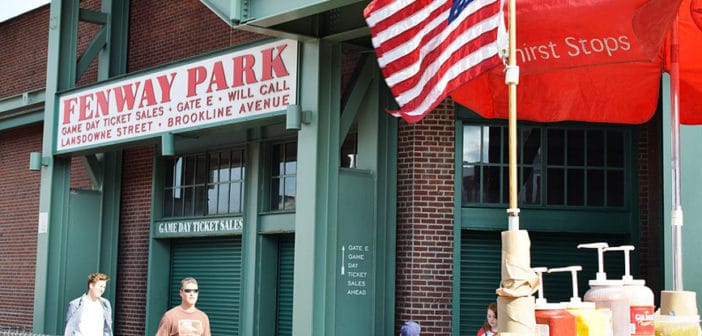 I don’t think I have ever read anything about politics and thought, “Wow, that is great idea!” But just like a wedding I once enjoyed, there is a first time for everything. And I have never heard a better idea than the one proposed by Boston City Councilors Bill Linehan and Frank Baker asking that a 2% tax be put on all alcohol sales in the city—retail and otherwise—to fund addiction treatment programs in New England. I didn’t think the ol’ boys had it in ‘em!
I don’t think I have ever read anything about politics and thought, “Wow, that is great idea!” But just like a wedding I once enjoyed, there is a first time for everything. And I have never heard a better idea than the one proposed by Boston City Councilors Bill Linehan and Frank Baker asking that a 2% tax be put on all alcohol sales in the city—retail and otherwise—to fund addiction treatment programs in New England. I didn’t think the ol’ boys had it in ‘em!
No Small B’daydas
As a former Bostonian drinker, I can tell you first hand that even just 2% on every drink that gets sold in this historical city—the birth place of the American Revolution, Benjamin Franklin and arguably, alcoholism—would add up to a small fortune. Those lobbying for the tax estimate $20 million will be collected, to be used to create extra detox beds and residential recovery homes, which help newly sober addicts and alcoholics get back on their feet with job training skills and placement, independent housing and reintegration with society. This final phase in recovery treatment is crucial but at this point there isn’t enough funding available to service the demand.
You Spot It, You Got It
While many Boston city business owners and residents argue that the tax will hurt local commerce—pointing out that cheaper alcohol will be available as little as a mile away from a bar that might be technically zoned in the city—the truth is, most Bostonians are like Manhattanites in that they don’t like to leave the city limits. For those who will see the minimal tax increase as a reason to avoid their favorite watering hole or restaurant, I say that these are most likely the people this tax is eventually going to help.
Fiscally Smaht
Although I am certain there is no shortage of needy cases within the 617 area code, the proposed booze tax won’t just go to help for the good people of Boston. Turns out, the state’s capital is the sugar daddy for a good amount of Massachusetts and New England and really needs more money to expand their reach.
Before you start thinking that the treatment game is spiraling out of control and could be a bogus waste of resources, those with chemical dependency often end up in prison for crimes they committed while under the influence and a typical year in prison costs over $40,000 while a run in treatment costs about $4,500. Sounds like this no-skin-off-our nose tax could end up saving the state a ton in backend incarceration costs. And God knows our penitentiaries could use a break.
Wicked Pissa
So, much like what happens when you snag a pair of Toms shoes, where buying one pair means giving one to a needy child, sit back and enjoy that Sam Adams because you might have paid $12 more for it at Fenway Park than you would have in Harvard Square. Still, you can comfort yourself with the fact that you have been part of the solution—the one that gets Smitty, Fitzy and Murph the help they so desperately need (and may actually want someday).
Photo courtesy of Vegasjon (Own work) [CC BY-SA 4.0 (https://creativecommons.org/licenses/by-sa/4.0)], via Wikimedia Commons (resized and cropped)
Sponsored DISCLAIMER: This is a paid advertisement for California Behavioral Health, LLC, a CA licensed substance abuse treatment provider and not a service provided by The Fix. Calls to this number are answered by CBH, free and without obligation to the consumer. No one who answers the call receives a fee based upon the consumer’s choice to enter treatment. For additional info on other treatment providers and options visit www.samhsa.gov.




